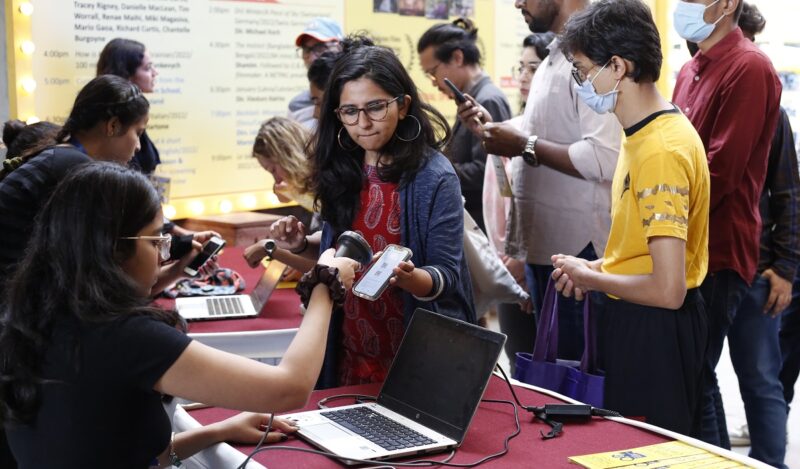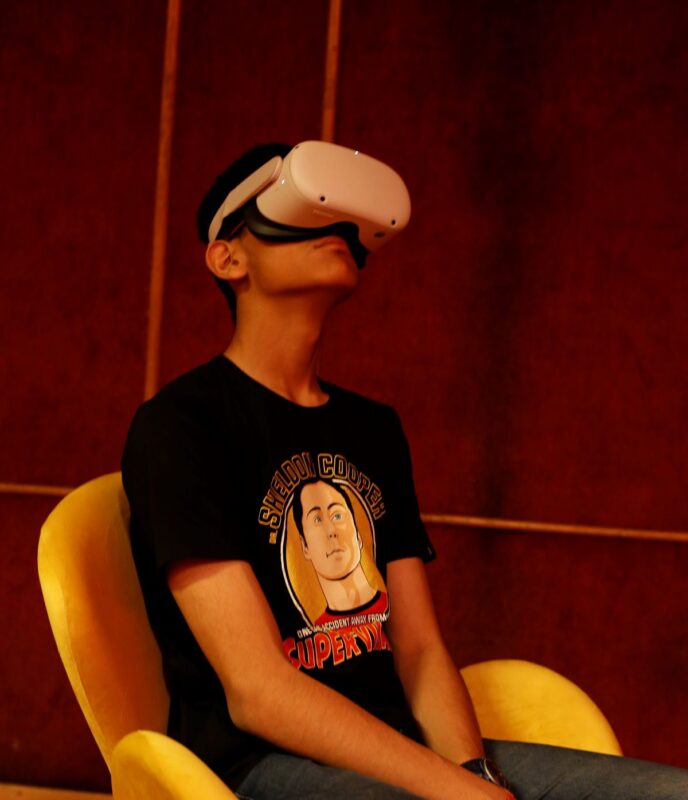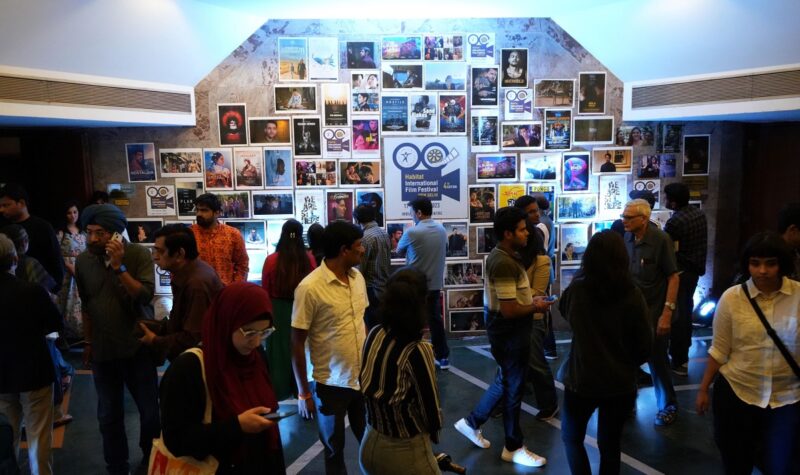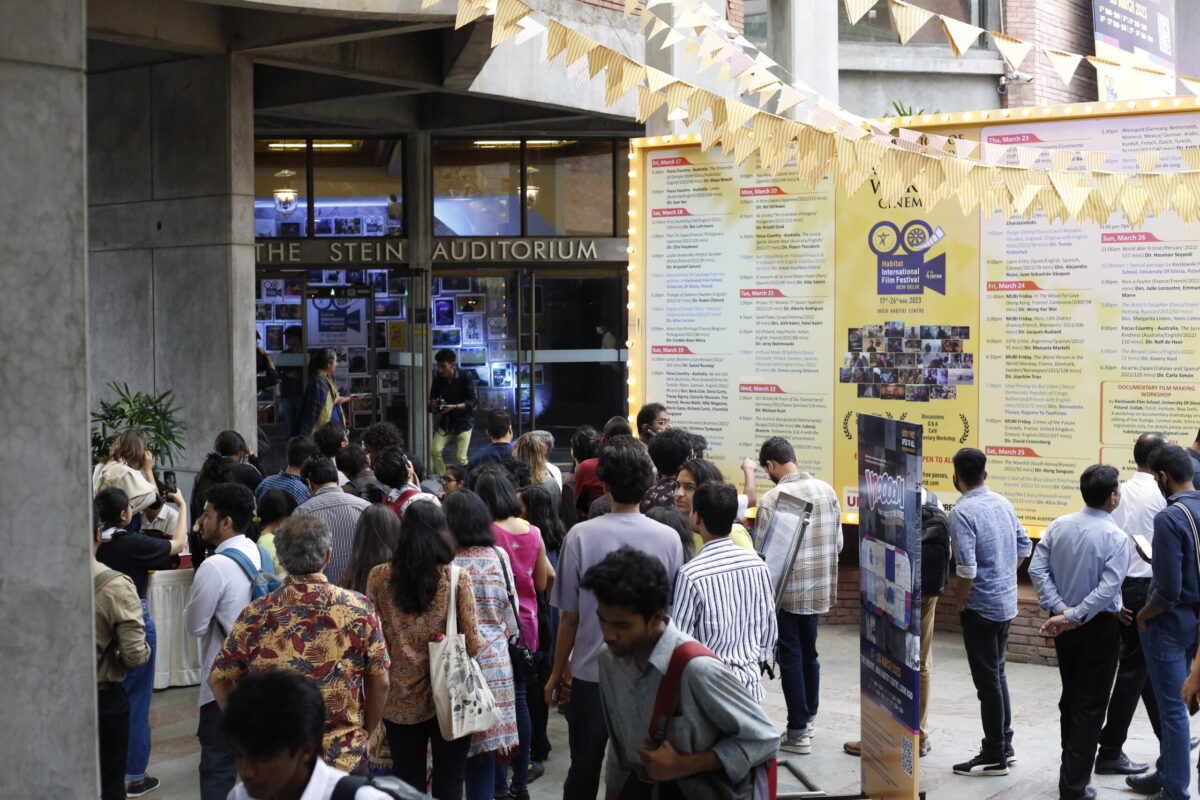Sobs, whispers, laughter… and yet more sobs. This was the atmosphere when Pakistani movie Joyland, the brainchild of director Saim Sadiq, was screened at Habitat International Film Festival on March 25 at 9 pm in Stein Auditorium, India Habitat Centre (IHC). Interestingly, the movie was not listed in the schedule and was only added later.
Once the window for online registration was opened, the passes went out of stock within an hour. Yet cinephiles, who had been waiting for the screening of the movie in India, showed up without tickets, hoping that they would be allowed a walk-in entry.
“Joyland was part of the curation right from the start. Took time to source it and get the necessary clearances. We had always kept the Saturday 9 pm slot free with the film in mind,” Vidyun Singh, Programmes Creative Head at IHC, told Patriot.
The movie is only Pakistani due to its country of origin. In its true essence, it captures the experiences of those living in the subcontinent as it gently explores the personal and political lives of a people.
“Last night’s screening of Joyland was magical…through grief and borders, art finds a way,” Shruti Sonal, a journalist at Times of India, tweeted after watching the movie in the festival.
Habitat International Film Festival (HIFF), a 10-day festival held at IHC from March 17 to 26, offered a huge cinematic experience of arthouse movies. Apart from fiction, the festival had documentaries, workshops, and virtual reality screenings. It screened 60 movies from 20 countries, with Australia being the focus country.
As the film festivals often showcase independent and international movies that may not receive wide distribution in mainstream cinemas, the joy and excitement in its audience is always an immersive experience. There is shared love for cinema, and HIFF kept all this in mind while curating the movies.

The Mubi Friday, a part of the HIFF where movies from the OTT platform Mubi were showcased, screened the critically-acclaimed In The Mood For Love by celebrated Chinese director Wong Kar Wai. Although the movie was released in the year 2000, the excitement among visitors to watch it was fresh, as they anticipated the visual poetry of Wai on the big screen.
The Mubi Friday offered French drama Paris, 13th District by Jacques Audiard, the crowd-pleaser The Worst Person In The World (Norwegian) by Joachim Trier, and the science fiction Crimes Of The Future by Canadian director David Cronenberg.
Photographer Rajesh Kumar Jha, who is an ardent film-lover, told Patriot that he had never watched an arthouse movie on a big screen and the experience at the festival had entirely changed his idea about movies.
“One thing I realised is that it is always a very different experience to watch movies with other cinephiles. You can understand the emotions and the love for cinema. Needless to say, I will visit such events more often now,” he says.
The festival featured documentaries around the Russia-Ukraine war, anti-colonial approach in film making, stories about indigenous heroes, among others. There was also a special four-day workshop by The Kieslowski Film School from Poland where festival directors, filmmakers and editors taught the art of documentary filmmaking. Grzegorz Paprzycki, acclaimed new voice in contemporary Polish cinema and a Kieslowski Film School alumni, was also one of the workshop trainers. The festival also screened a curated package of Polish shorts and documentaries from the film school.

“We are very honoured and humbled to join a wonderful community of film enthusiasts and have the unique opportunity of sharing some of our world perceptions and our ways of living. We all, across cultures and continents, experience human dilemmas, challenges and growth in similar ways. I hope this peek into our world would also meet viewers in India, through their own personal paths and lives,” said director Gitit Kabiri of the Israeli film Sand Flakes.
Sand Flakes, screened on March 21, follows the story of 14-year-old David, a sensitive, creative teenager, who lives in southern Israel, and discovers an online writing forum and starts publishing his family stories under the fake identity of the rich kid Nadav. The situation unfolds the delicate fabric of the family.
For focus country Australia, movies screened were Limbo by Ivan Sen, We Are Still Here by a group of directors (Beck Cole, Dena Curtis, Tracey Rigney, Danielle MacLean, Tim Worrall, Renae Maihi, Miki Magasiva, Mario Gaoa, Richard Curtis, Chantelle Burgoyne), The Lonely Spirits Variety Hours by Platon Theodoris, Sweet As by Jub Clerc, and The Survival Of Kindness by Rolf de Heer.

“My team and I are thrilled by the screening of our absurdist film. For this year’s film festival, Australia is the country in focus and we are honoured to be included with such an esteemed bunch of creators, celebrating unique and refreshing Australian perspectives,” said Platon Theodoris, director of Lonely Spirits Variety Hour.
The comedy follows the life of Neville Umbrellaman, a verbose intellectual, who hosts a late-night radio show from his parents’ garage. He, then, shares existential musings with his unexpected guests.
Parallelly, the festival hosted Vroooom, a virtual reality program, in partnership with the Goethe Institute.
Curated by Ulrich Schrauth, the films in the program were segregated into four sections: Uncertain Times Fighting for Freedom, Fresh Perspectives – Female and Non-Binary Creators in VR, Missing Pictures, and Imagined Realities – Animation and Painting in a New Digital Age.
In each section, films, documentaries, and shorts around experimental themes and forms, with a focus on female and non-binary creators from around the world, explored the relationship between the past and the present.
“Virtual Reality Program shows the true potential of immersive technologies and new media: to allow the viewer a different insight into our times by literally shifting perspectives and help us understand our exceedingly complex world in a new way,” Schrauth said about the first ever virtual reality project in the festival.




